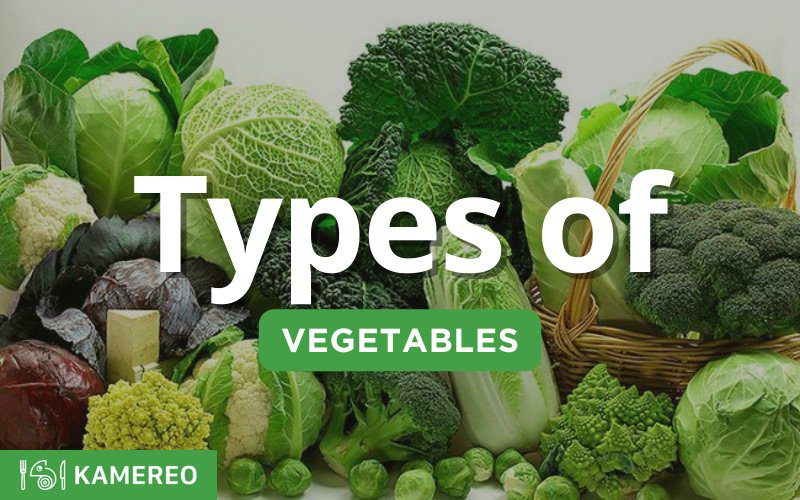Vegetables are commonly known as a good source of healthy food. These foods are often low in calories, rich in vitamins, minerals, and fiber. Additionally, some types of vegetables have specific health benefits such as anti-inflammatory properties or reducing the risk of diseases,… that you eat daily. Let’s explore the details of commonly eaten vegetables in the following article with Kamereo!
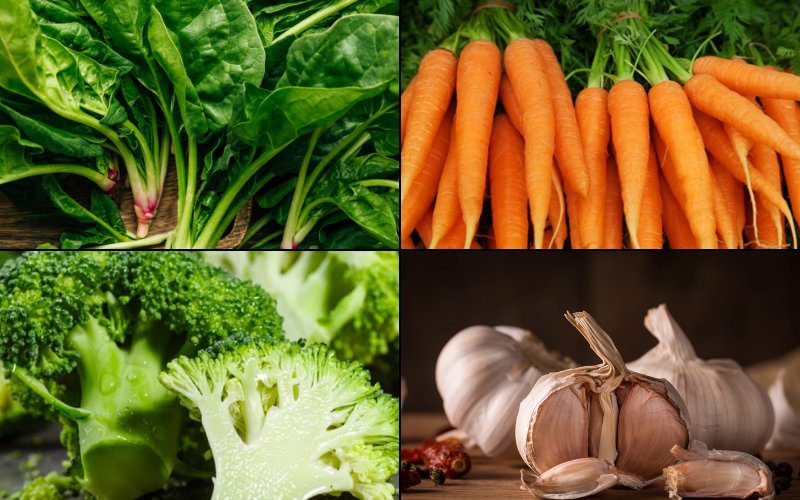
Spinach
Spinach often tops the list of vegetables with high nutritional value, healthy for everyone. About 30 grams of raw spinach provides up to 56% of the Recommended Dietary Allowance (RDA) of vitamin A, 100% of the RDA of vitamin K daily, and only about 7 calories.
In addition, spinach is also rich in antioxidants, helping to reduce the risk of chronic diseases. Many studies have shown that dark green leafy vegetables like spinach contain a lot of beta-carotene and lutein, which support reducing the risk of cancer.
Moreover, another study in 2015 on consuming spinach may benefit heart health by reducing blood pressure.
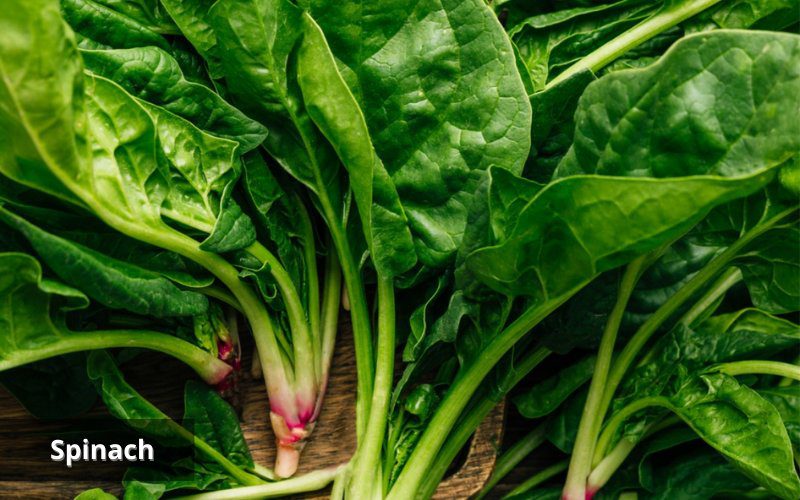
Carrots
Just about 128g of carrots provide up to 428% of the RDA of vitamin A. Additionally, this type of food also contains beta-carotene – a powerful antioxidant that can help prevent cancer. Detailed studies have revealed that consuming carrots weekly can reduce the risk of prostate cancer by up to 5%.
Other studies have also shown that eating carrots may reduce the risk of lung cancer in smokers. Accordingly, the group of people who only smoked without consuming carrots had a three times higher risk of lung cancer than those who regularly consumed this type of food.
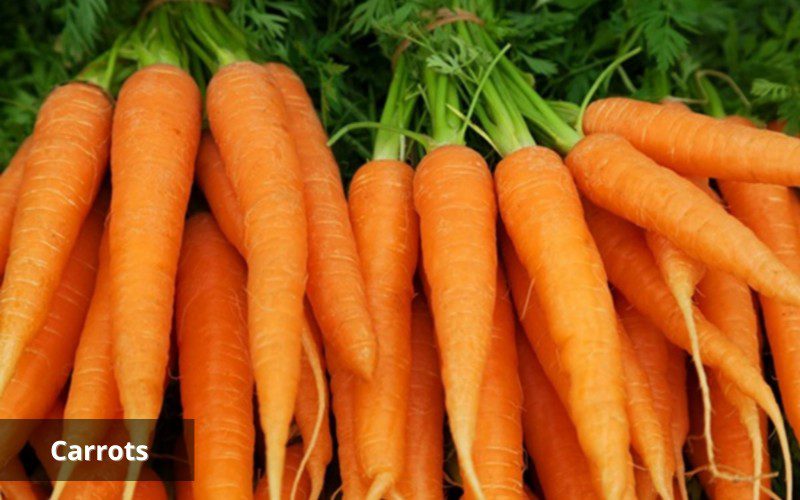
Broccoli
Broccoli, also known as green cabbage, is a member of the cabbage family. It is a significant source of essential nutrients for the body. Just about 91 grams of fresh broccoli provides up to 116% of the RDA of vitamin K, 135% of the RDA of vitamin C, along with a significant amount of folate, manganese, and potassium. Moreover, this green vegetable is also rich in plant compounds containing glucosinolates and sulforaphane.
Animal studies have shown that sulforaphane may reduce the size and number of breast cancer cells. Moreover, this compound also inhibits the growth of tumors in mice.
Furthermore, consuming broccoli may also help prevent other chronic diseases. A study in 2010 also conducted on animals showed that consuming broccoli sprouts may protect the heart from oxidative stress by significantly reducing oxidative levels.
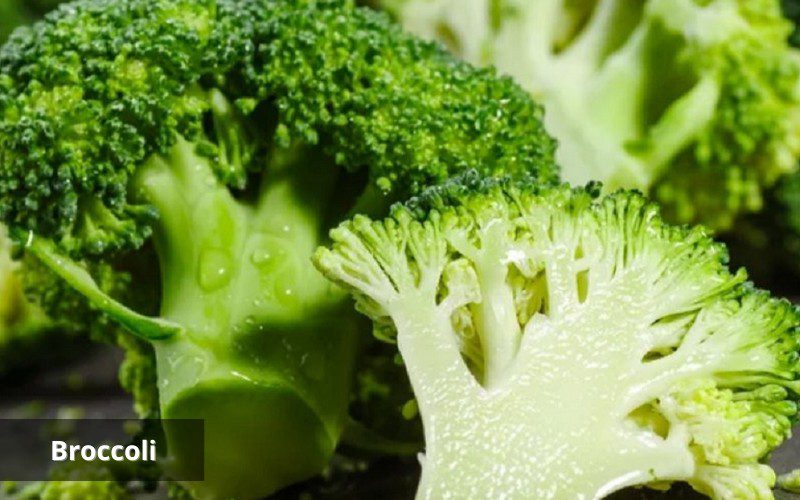
Garlic
Researchers have found that allicin compound along with diallyl trisulfide in garlic can reduce blood sugar levels and improve insulin sensitivity in diabetic mice.
Moreover, a study in humans has shown that consuming garlic may reduce total cholesterol levels in the blood, specifically LDL cholesterol and neutral fats, while increasing HDL cholesterol.
Garlic is also considered to have cancer-preventing effects, especially liver cancer. However, more research is needed to understand this effect before drawing clear conclusions.
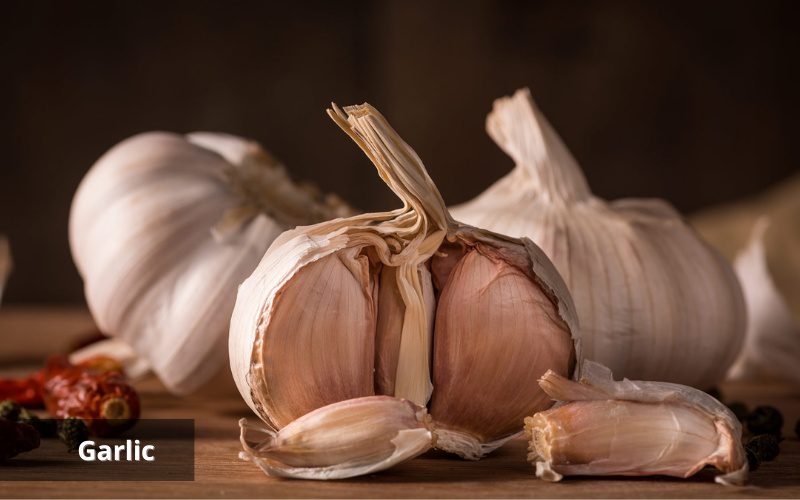
Brussels Sprouts
Brussels sprouts are a member of the cabbage family, resembling green cabbage but smaller in size. Especially, this green vegetable contains many beneficial compounds for health. Each time you consume Brussels sprouts, you provide a large amount of vitamins and minerals to the body, including: vitamin K, vitamin A, vitamin C, folate, manganese, and potassium.
Accordingly, Brussels sprouts provide the antioxidant kaempferol, which can protect cells from damage caused by free radicals. Animal studies have shown that this compound helps protect against oxidative damage, one of the main causes of chronic diseases.
Brussels sprouts also enhance the detoxification process. Study participants experienced an increase of about 15-30% in detoxification enzyme activity, helping reduce the risk of colorectal cancer.
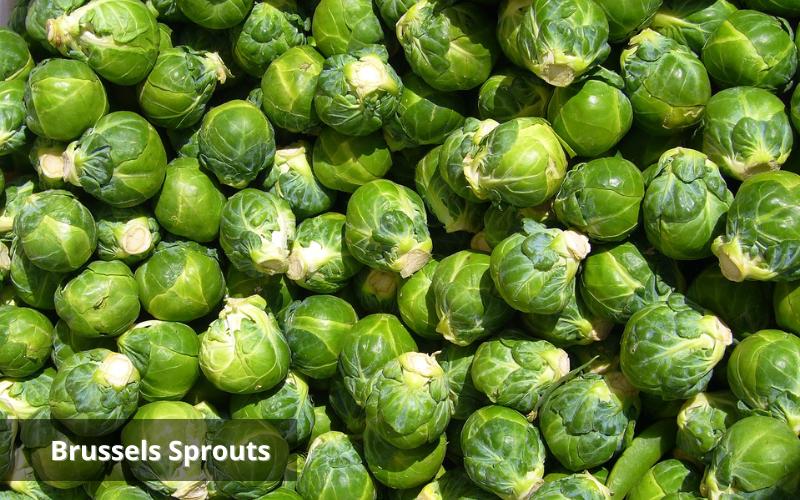
Kale
Similar to other green vegetables, kale also provides many essential nutrients for the body. About 67g of fresh kale provides plenty of vitamins B, potassium, calcium, and copper. Moreover, this amount of kale also meets the daily requirements for vitamins A, C, and K.
A 2008 study on 32 men with high cholesterol levels who drank 150ml of kale juice daily for 12 weeks showed that HDL cholesterol increased by 27%, LDL cholesterol decreased by 10%, and antioxidant activity increased. This demonstrates the important role of kale in improving heart health.
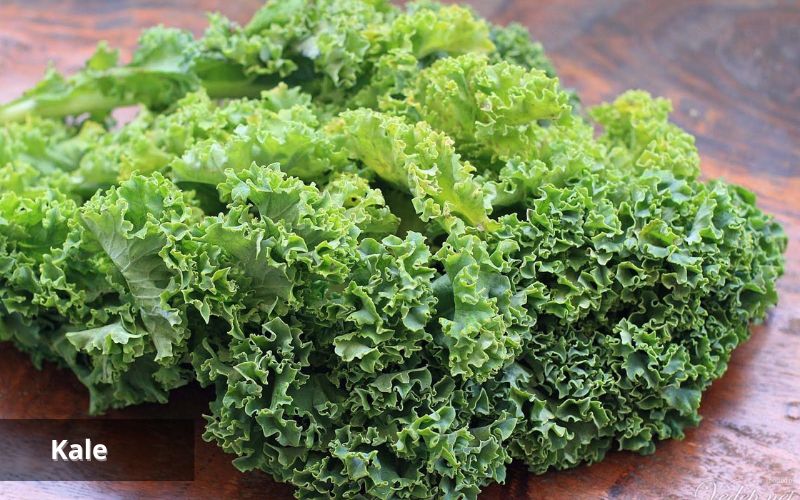
Green Peas
Green peas are known to be a starchy vegetable, so their carbohydrate and calorie content is higher than that of ordinary vegetables. This can affect blood sugar levels when consuming a large amount of peas.
Moreover, green peas are very rich in essential nutrients for the body. About 160g of these peas, when cooked, provide 9g of fiber, 9g of protein, and many other nutrients such as: vitamin A, C, and K, niacin, folate, riboflavin, thiamine,…
Due to their high fiber content, green peas can support digestive health by promoting the growth of beneficial bacteria in the intestines. Thus, bowel movements are stimulated more frequently.
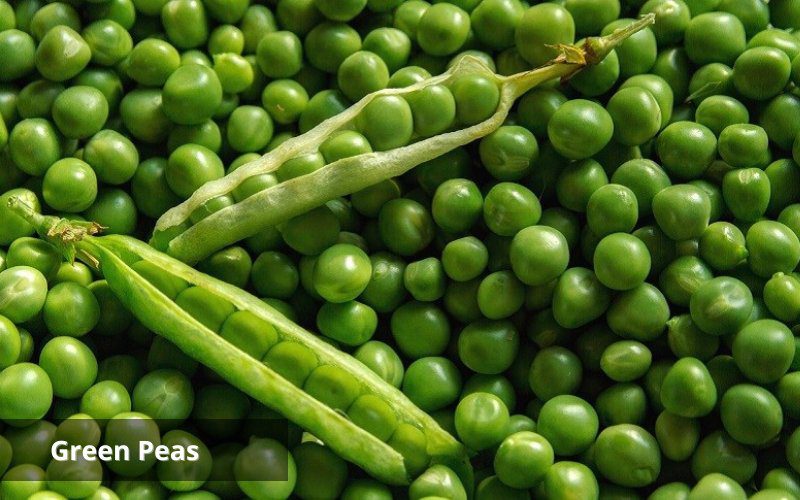
Rainbow Chard
Rainbow chard has low calorie content but provides many essential vitamins and minerals. Just about 36g of this green vegetable provides 1g of fiber, 1g of protein, along with a large amount of vitamins A, C, K, manganese, and magnesium. However, with the same amount of rainbow chard, it only contains 7 calories, making it suitable for those on a diet.
In particular, rainbow chard is known for its ability to prevent damage caused by diabetes. In animal studies, extracts from this vegetable showed the ability to reduce blood sugar levels and prevent cell damage caused by free radicals.
Another study on animals also showed that the antioxidant content in rainbow chard extracts may protect the liver and kidneys from complications caused by diabetes.
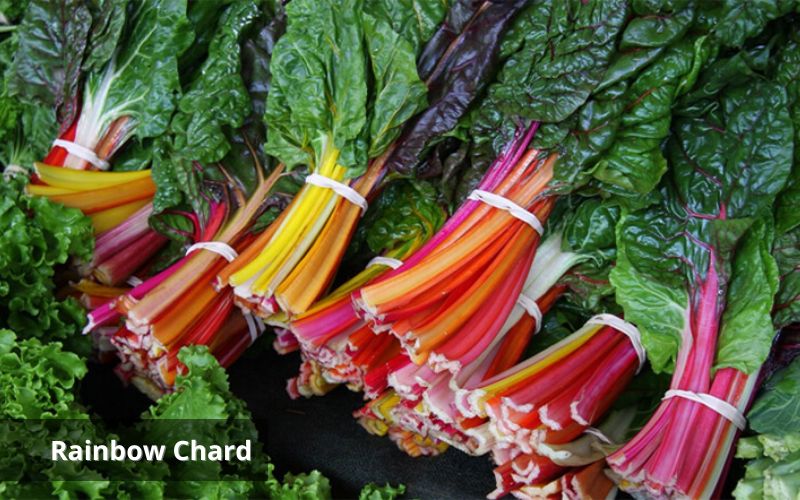
Ginger
A meta-analysis of 12 studies involving nearly 1,300 pregnant women has demonstrated that ginger significantly reduces the sensation of nausea compared to using a placebo.
Additionally, ginger is known for its strong anti-inflammatory properties, often used in treating inflammatory disorders such as arthritis, lupus, or gout.

Asparagus
Asparagus is a rich source of vitamins and minerals that you may not expect. Just about 90g of fresh asparagus provides up to 1/3 of the daily folate requirement. Moreover, this amount also contains a lot of selenium, vitamin K, thiamin, and riboflavin.
Folate in asparagus plays a crucial role in protecting the body from diseases and preventing neural tube defects in fetuses. Laboratory studies have also shown that this vegetable is beneficial for the liver by supporting metabolism and protecting the liver against toxicity.
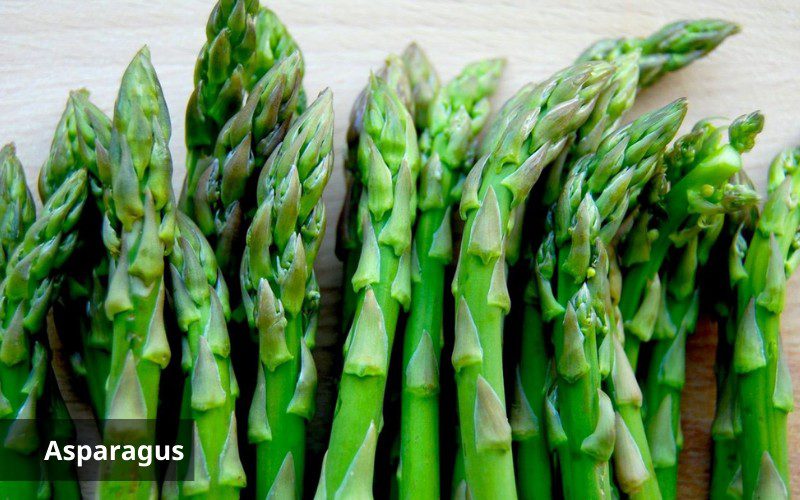
Red Cabbage
Red cabbage is a member of the cabbage family, also containing many antioxidants and other properties that promote health. Accordingly, just about 89g of fresh red cabbage provides up to 85% of the daily vitamin C requirement and 2g of fiber.
In 2012, a research group was designed to increase cholesterol levels and cause plaque buildup in mouse arteries. Then, they were injected with anthocyanin extract from red cabbage. The results showed that this extract could prevent an increase in cholesterol levels in the blood and protect them against damage to the heart and liver.
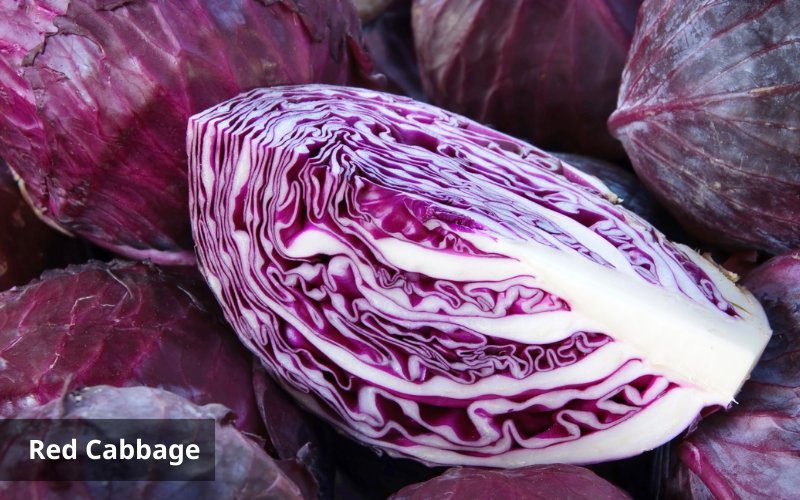
Sweet Potatoes
On average, one sweet potato provides about 4g of fiber, 2g of protein, and a large amount of vitamin C, vitamin B6, potassium, and manganese.
Sweet potatoes are also a rich source of vitamin A, providing up to 438% of the body’s daily requirement. Beta-carotene from this type of food has been shown to significantly reduce the risk of certain cancers such as lung and breast cancer.
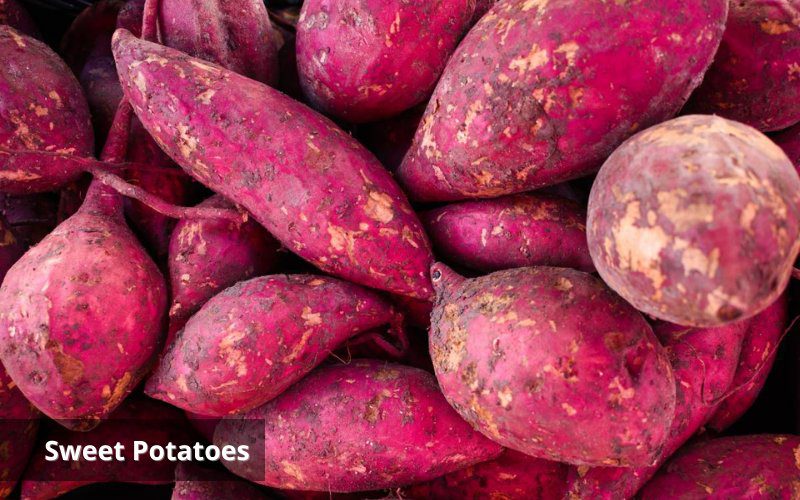
Broccoli
With about 190g of cooked broccoli providing the body with up to 5g of fiber, 4g of protein, and meeting 27% of the daily calcium requirement.
In fact, broccoli is one of the best plant sources of calcium. Sufficient calcium supplementation from plant sources can enhance bone health and has been demonstrated through numerous studies on the ability to reduce the risk of osteoporosis.
Broccoli also contains many antioxidants, so this type of food may help reduce the risk of certain diseases. Accordingly, consuming more than one serving of broccoli per week may reduce the risk of high blood pressure by up to 57%.
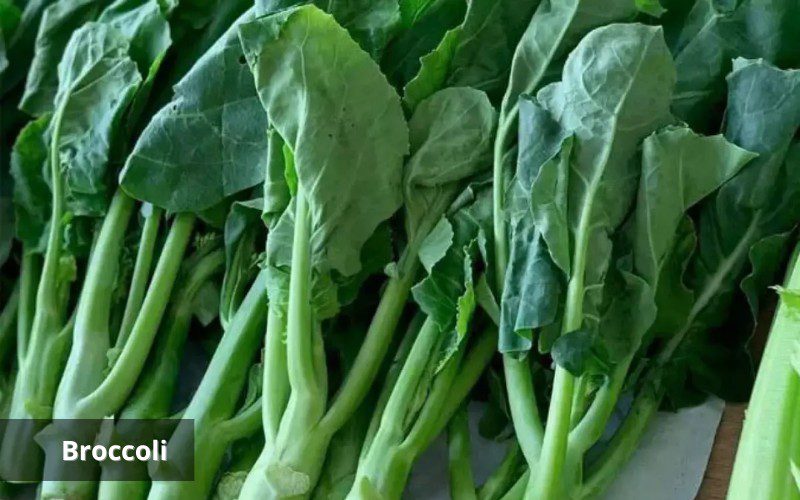
Parsnips
Parsnips are a vegetable in the same family as carrots, which can be eaten raw or cooked. With just 135g of this vegetable containing about 5g of fiber and providing 140% of the body’s daily vitamin C requirement.
Studies have shown that the antioxidant content in parsnips has a strong anti-inflammatory and diabetes-preventing effect. In particular, research has shown that red parsnips have nearly twice the amount of phenolic antioxidants and are more effective in preventing diabetes and inflammation than other types of parsnips.
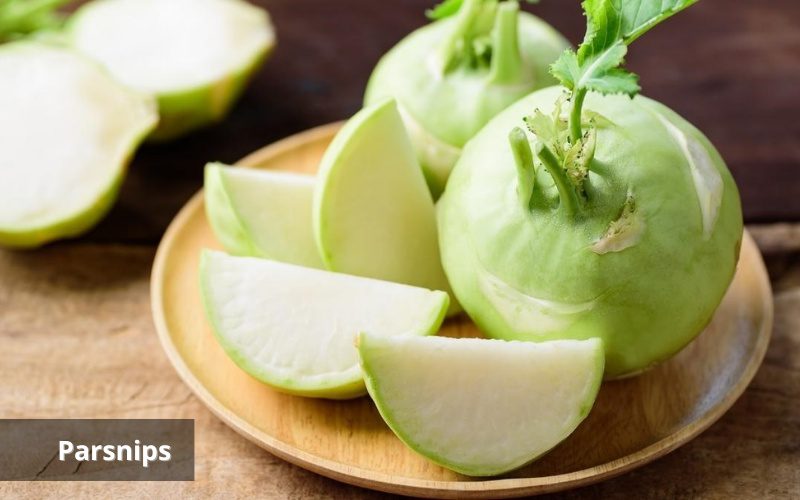
Summary
Above is a summary of the most commonly eaten vegetables with good nutritional content today. Each type of vegetable has excellent benefits for our overall health. Therefore, make sure to supplement your diet with a variety of nutrients from different types of vegetables. Also, don’t forget to follow the latest updates on Fruit and vegetable dictionary in Kamereo’s newsfeed!
Read more:



